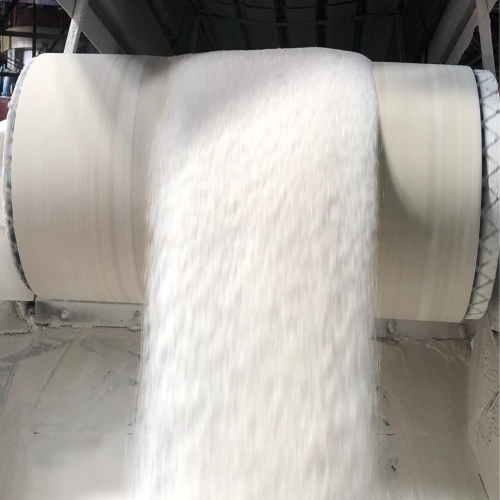New Delhi: As the Asian sugar market charts its course into 2024, it faces the headwinds of supply chain disruptions and cautious import demand amid historically high price levels.
Amid unpredictable weather conditions and evolving trade dynamics, sugar prices in 2024 are poised to be heavily influenced by these fundamental factors.
The NY#11 sugar futures contract reached 12-year highs in April, maintaining peaks around 28 cents/lb levels in November.
Amid unpredictable weather conditions and evolving trade dynamics, sugar prices in 2024 are poised to be heavily influenced by these fundamental factors.
Thailand’s cane crush and sugar production estimates have been reduced in light of the effects of the El Nino climate phenomenon bringing about unpredictable weather, such as irregular rainfall during the planting season. S&P Global Commodity Insights estimates the cane crush and sugar production for marketing year 2023-24 (October-September) at 85 million mt and 9.8 million mt, respectively.
Although increased rainfall since September has benefited cane crush estimates, sugar exports from Thailand are expected to be smaller in 2024, according to a Singapore-based trader.
“Low rainfall during the sugarcane early growth stages contributed to the smaller production from the new crop. However, increased rainfall since September has been beneficial for cane crush estimates. Nonetheless, sugar exports for Thailand will still be smaller in 2024,” according to a Singapore-based trader.
India is the second-largest exporter of raw cane sugar, and Thailand is the third-largest. However, India is expected to limit sugar exports until the first half of 2024 due to El Nino.
The 2023 monsoon rainfall hit a five-year low, leading to erratic precipitation in key crop-producing regions.
Lower rainfall has impacted yields, prompting concerns about tight supply in the first quarter of 2024 before Brazil’s crop comes into play.
Uncertainty looms as India is yet to announce a sugar export quota for the new crop, with expectations that this may not change until after the elections in May.
In a surprising development, India prohibited the use of sugarcane juice and sugar syrup for ethanol in the Ethanol Supply Year 2023-24. The order was later revised to allow mills to divert 1.7 million mt of sugar to ethanol in 2023-24. S&P Global currently estimates sugar production in India at 32.75 million metric tonnes after this diversion.
The shift in India’s sugar/ethanol policy contributed to a selloff in sugar prices, along with a bumper crop in Brazil’s Center-South.
Mounting concerns about sugar supply from major producers like Thailand and India have led to increased prices, impacting domestic consumption and contributing to inflation in 2023.
“There is still no sugar export quota for the new crop, and I feel that this will not change until the election is over in May because the government needs to keep sugar prices at an acceptable level,” an India-based source said.
Indonesia experienced a decline in sugar imports in 2023, but the trend is expected to reverse in 2024 as import licences become more attractive with falling NY#11 sugar prices.
Freight prices will continue to be a crucial factor in Indonesia’s import prices in 2024.
Market expectations for 2024 sugar imports in Asia include around 3.6 million mt for refineries and about 900,000 mt for mills.
Indonesia’s import permits are anticipated to be issued in late December.
In the Philippines, the Department of Agriculture aims to limit sugar importation to 200,000 mt in 2024, contingent on favourable weather conditions.
As the Asian sugar market grapples with these challenges, stakeholders will closely monitor weather patterns, policy changes, and trade dynamics that will shape the trajectory of sugar prices in the coming year.
(With inputs from ANI)











